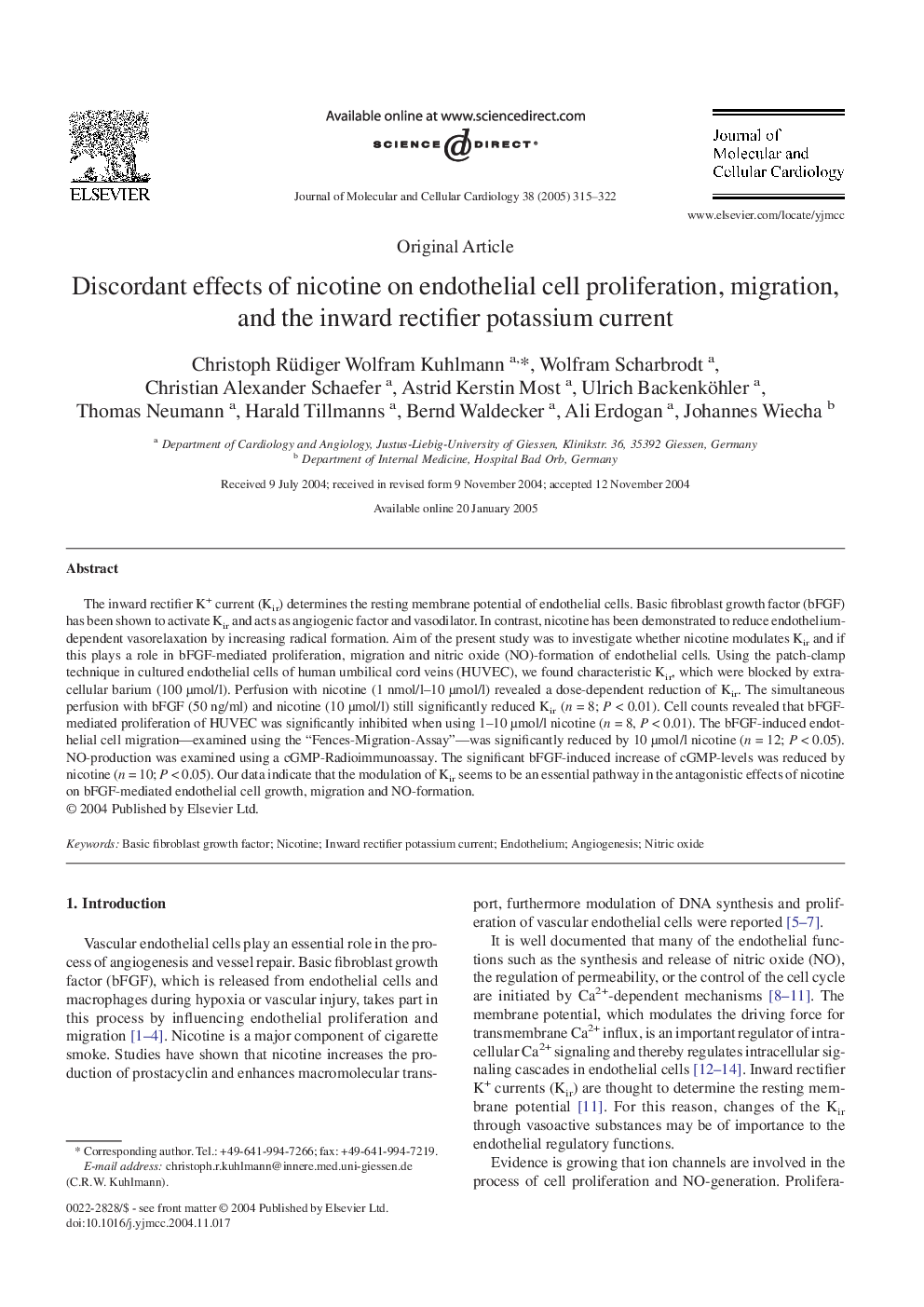| Article ID | Journal | Published Year | Pages | File Type |
|---|---|---|---|---|
| 10954447 | Journal of Molecular and Cellular Cardiology | 2005 | 8 Pages |
Abstract
The inward rectifier K+ current (Kir) determines the resting membrane potential of endothelial cells. Basic fibroblast growth factor (bFGF) has been shown to activate Kir and acts as angiogenic factor and vasodilator. In contrast, nicotine has been demonstrated to reduce endothelium-dependent vasorelaxation by increasing radical formation. Aim of the present study was to investigate whether nicotine modulates Kir and if this plays a role in bFGF-mediated proliferation, migration and nitric oxide (NO)-formation of endothelial cells. Using the patch-clamp technique in cultured endothelial cells of human umbilical cord veins (HUVEC), we found characteristic Kir, which were blocked by extracellular barium (100 μmol/l). Perfusion with nicotine (1 nmol/l-10 μmol/l) revealed a dose-dependent reduction of Kir. The simultaneous perfusion with bFGF (50 ng/ml) and nicotine (10 μmol/l) still significantly reduced Kir (n = 8; P < 0.01). Cell counts revealed that bFGF-mediated proliferation of HUVEC was significantly inhibited when using 1-10 μmol/l nicotine (n = 8, P < 0.01). The bFGF-induced endothelial cell migration-examined using the “Fences-Migration-Assay”-was significantly reduced by 10 μmol/l nicotine (n = 12; P < 0.05). NO-production was examined using a cGMP-Radioimmunoassay. The significant bFGF-induced increase of cGMP-levels was reduced by nicotine (n = 10; P < 0.05). Our data indicate that the modulation of Kir seems to be an essential pathway in the antagonistic effects of nicotine on bFGF-mediated endothelial cell growth, migration and NO-formation.
Keywords
Related Topics
Life Sciences
Biochemistry, Genetics and Molecular Biology
Cell Biology
Authors
Christoph Rüdiger Wolfram Kuhlmann, Wolfram Scharbrodt, Christian Alexander Schaefer, Astrid Kerstin Most, Ulrich Backenköhler, Thomas Neumann, Harald Tillmanns, Bernd Waldecker, Ali Erdogan, Johannes Wiecha,
